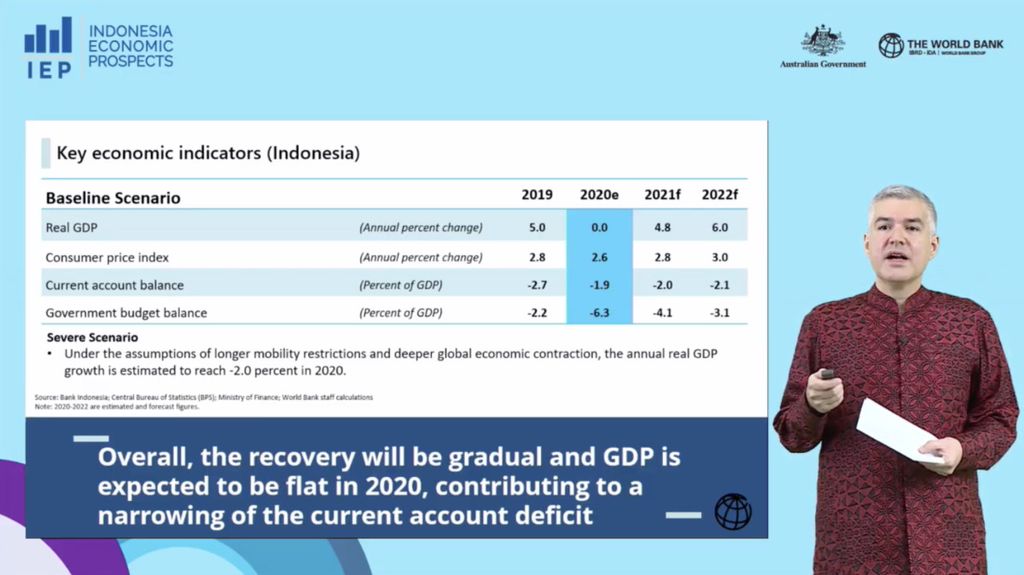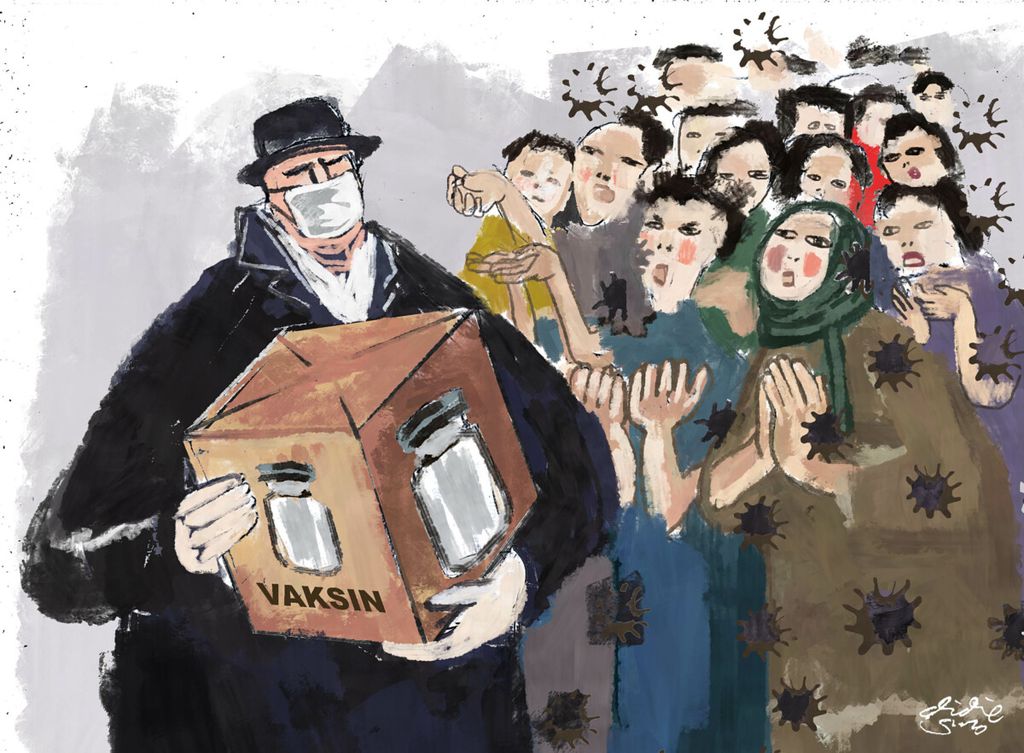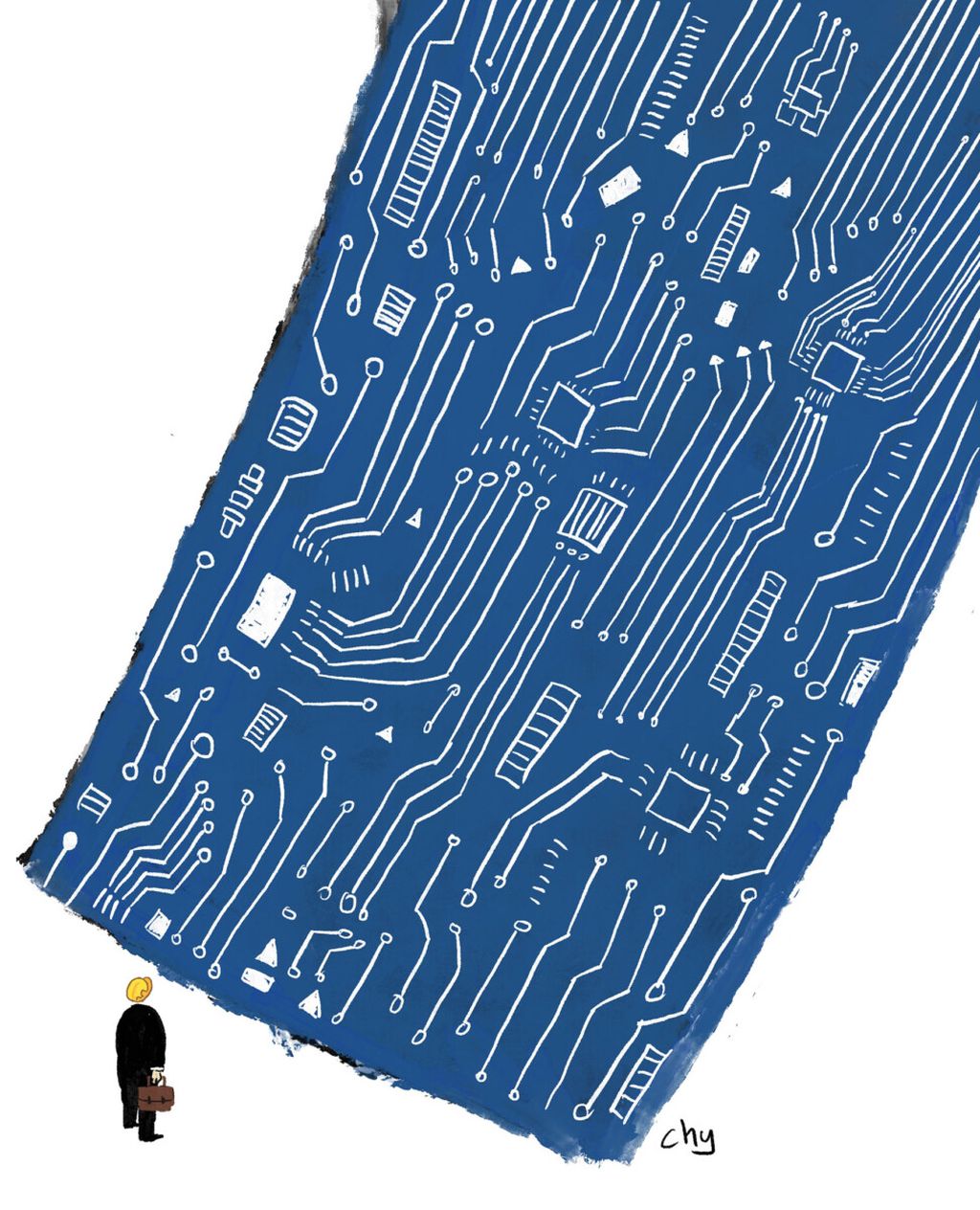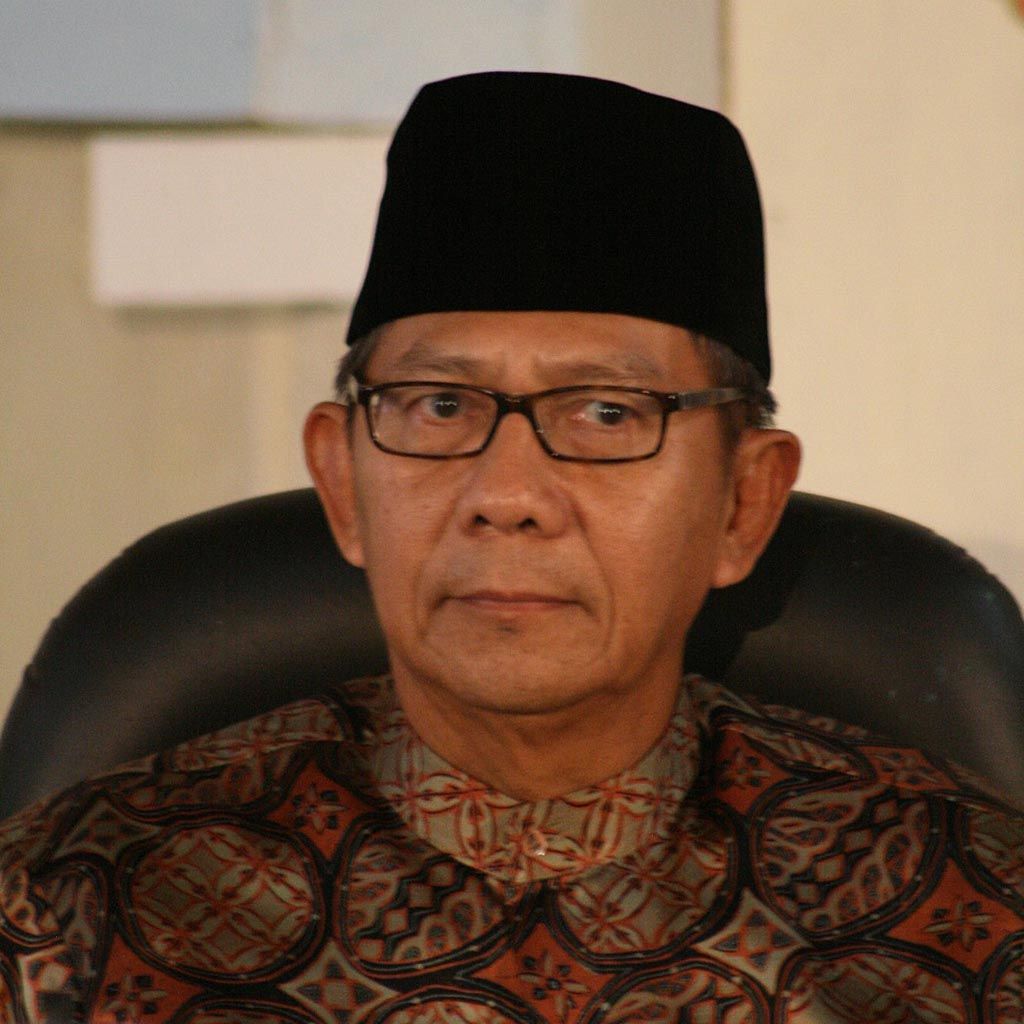Welcoming the Year 2021
2020 is coming to an end. It has been a difficult year with the biggest humanitarian crisis in modern history.

2020 is coming to an end. It has been a difficult year with the biggest humanitarian crisis in modern history.
In just about a year, the coronavirus has killed 1.5 million people. In Indonesia alone, the number has reached a total of 18,000 people. As an illustration, according to Johns Hopkins University, the United States (US), the number of the people who have died from Covid-19 is 280,000 people higher than the number of the US soldiers and people killed (combined) in fighting during the last five wars: Korea, Vietnam, Iraq, Afghanistan and the Persian Gulf.
Also read: 2021 Challenge: Adapting and Collaborating or Defeated by the Pandemic
As an impact of the crisis, most countries have fallen into economic recession, and it is estimated that the 2020 world economic growth will be negative at about minus 4.5 percent (IMF). In Indonesia, this crisis has also caused a recession following the negative growth of 5.32 percent and 3.49 percent in the second and third quarters, respectively, resulting in an increase in the unemployment rate and the poverty rate.
Various uncertainties
The government has responded to this crisis with various mitigation efforts in the health and economic sectors. According to the World Health Organization (WHO), in general, the efforts made by Indonesia in coping with the crisis are relatively good if compared with other countries.
Also read: Banking Challenges in 2021
In the economic sector, the mitigation efforts carried out under the National Economic Recovery (PEN) programs have shown results, with a positive growth of 5.05 percent from the second quarter to the third quarter. Overall, entering 2021, we have enough reason to be optimistic, although there is still a number of uncertainties.

Projected economic growth in Indonesia. Source: World Bank
Toward the end of 2020, economic activities began to grow, along with the fiscal stimulus and the increase in the state budget (APBN). National economic activities have begun to show signs of recovery, including in the manufacturing sector, the Purchasing Manager Index, motor vehicle sales, retail sales growth, the consumer confidence index, and a survey of business activities that has shown an increase in investment.
For 2021, the PEN program in the APBN has been designed to promote growth and finance Covid-19 mitigation, both in terms of prevention and treatment. It is estimated that the Indonesian economy will grow positively again at between 4.5 percent and 5.5 percent next year.
Also read: Looking at the Digital Economy in 2021
The national economy will certainly be influenced by global economic development, which will also be affected by political developments in various regions. Many predict that the end of Donald Trump\'s administration will change the constellation of global politics. It is thought that under President Joe Biden, the world\'s most influential country will return to international institutions and multilateral cooperation that Trump has abandoned, such as the WHO and the Paris Agreement on climate change.
Tensions in the Asia-Pacific region are likely to ease, especially between the US and China, the world\'s two-largest economies. It is also possible that the US will resume the Barack Obama administration\'s diplomatic steps regarding peace efforts in the Middle East. All of these are expected to have positive consequences on the global economy in 2021, which the IMF has estimated to grow 5.2 percent.
Also read: Challenges Across the Generation
One of the expected game changers in 2021 is the availability of a vaccine, which will prevent virus transmission and give people confidence and security. At the same time, it is also expected that economic activities will become more open both in the production and spending side. The availability of vaccines will help stimulate the economies of countries in the world to enter the recovery process and restore domestic economic growth.
The United Kingdom (UK) has taken the lead by approving a vaccine manufactured by Pfizer / BioNTech that will be distributed at the beginning December, this year. The US is also considering to distribute Pfizer vaccine and another vaccine, namely Moderna. China has moved ahead and Russia was also reported to have begun the distribution of its own vaccines. Indonesia has also moved quickly to bring in vaccines from China and the first batch of the vaccine has reportedly arrived in the country.

Returning to the domestic economy, one of the things that is expected to improve the national economy is the implementation of the Job Creation Law, which is expected to strengthen public and market confidence in the national economy, stimulate investment, increase productivity and increase employment, as well as to encourage small and medium enterprises. The optimism must also be followed with a critical attitude because the expected growth in the economic activities will not occur automatically. The economy cannot be managed with rhetoric as the pandemic crisis cannot be overcome without hard work and cooperation between the government and society.
In the economic sector, the implementation of the Job Creation Law, which is expected to spur growth, still wait for the issuance of its implementing regulations. The new law needs to be widely disseminated so that it can be implementation effectively. In this case, the most important thing is the readiness of the government and the bureaucracy to enforce the law and to go through the reform process.
Also read: Digital Economy Blueprint
People\'s lives, including their habits, have changed during the pandemic. Technology, especially digital, has rapidly entered everyday life. In the future, life patterns, work patterns, educational methods, and health services will rely more on technology. The concepts of place, space and time are becoming more relative.
Not only society, political institutions and democratic instruments, also need to reform. For example, in the past, corruption occurred mostly in the bureaucracy, while now in the post-reform era, corruption is more prevalent within political institutions.

Protesters hurl debris at police during a rally against a controversial bill on job creation in Medan, North Sumatra, Indonesia, Thursday, Oct. 8, 2020. Thousands of enraged students and workers staged rallies across Indonesia on Thursday in opposition to the new law they say will cripple labor rights and harm the environment.
It is common knowledge that the legislative process comes at a cost, and political offices (government positions filled by political parties’ representatives) become a money-generating machine for those in power. This practice is not only detrimental to the state, but also delegitimizes state and government institutions in the eyes of the people and diminishes belief in democracy.
This condition becomes a fertile ground and opens up opportunities for certain elements with political agendas to be achieved through shortcuts without being tested through the democratic process.
Vaccination is expected to solve the pandemic problem, but it is not that easy. In addition to the large amount of the vaccines needed for the large number of the Indonesian people who are spread out so widely, infrastructure, logistics, and human resources are also pose extraordinary challenges.
Also read: Digital Economy
Probably the vaccination will be largest we have ever experienced. Say we have the vaccines, but providing the storage and their delivery will be a big problem. All I know is that Pfizer should be stored in the ultralow temperature freezer with a temperature below minus 70 degrees Celsius.
Moderna should be stored at temperatures below minus 20 degrees Celsius, and can only be stored in the refrigerator for up to 30 days. Of course, vaccines from China also have standards that must be met, even though they may not be strict as those above.
In the end, public awareness and the development of a supportive health ecosystem will greatly affect our success in overcoming this pandemic. What is certain is that the coronavirus cannot be eliminated. What should we do is to prevent the virus transmission and, for those already infected, treatment and recovery processes should be conducted properly to ensure that the virus attack is not fatal.
Accurate and credible tracking and data collection are very important for the effectiveness of this epidemic disaster management. The success in the health sector is a prerequisite for the economy to escape from stagnation. The Great Reset agenda proposed by the World Economic Forum, namely the major revolution in the world economy, indicates that the Covid-19 tragedy is s a rare but narrow window of opportunity must be taken to reflect, rearrange and reset our world to create a future that is healthier, just, and prosperous.

Future strategy
At the national level, the lessons and momentum obtained from the 2020 pandemic are an opportunity for our nation to redesign and create a new direction for the national economy.
There are two strategies that must be the basis for future economic policy. First, the national economy must not merely pursue growth, but must be prioritized for the establishment of a more inclusive economy. The capacity of small and medium business actors must be strengthened more seriously in a well-planned manner and its implementation should be assessed regularly.
Second, the national economy must increasingly adapt to technological developments, especially — although not limited to — digital technology. The development of digital infrastructure for both the economy and public services is an absolute priority. The pandemic has taught the world\'s citizens to live a digital life as many businesses have changed their business models.
The capacity of small and medium business actors must be strengthened more seriously in a well-planned manner and its implementation should be assessed regularly.
One example, Indonesia\'s success in start-up development in the last decade is an experience that should be further developed, expanded and enhanced. The establishment of start-ups can help empowering the people\'s economy through technology and encouraging digital economic equity.
With the above background, in the future, business actors in Indonesia must absolutely be able to adjust and carry out technology-based upscaling and rescaling in their respective business fields. The workers must also be honed again so that they are ready to compete with workers in other countries such as Thailand, Vietnam and the Philippines — and for that we need an upskilling and reskilling program.

Ginandjar Kartasasmita
For the medium / long term, digital literacy needs to be taught in schools from an early age. The point is that it is no longer business as usual, and do not be bound by the norms of the pre-digital era. The government is certainly responsible for creating a supportive environment and providing the required infrastructure, while the private sector has the task to improve the competitiveness in order to be able take the advantage of the opportunities. The public and private sectors must complement and strengthen each other, but must not collude. Therefore, there should be boundaries between the two, both legally and morally.
Ginandjar Kartasasmita, The first chairman of the Regional Representative Council (2004-2009); member of the Presidential Advisory Council (2009-2014)